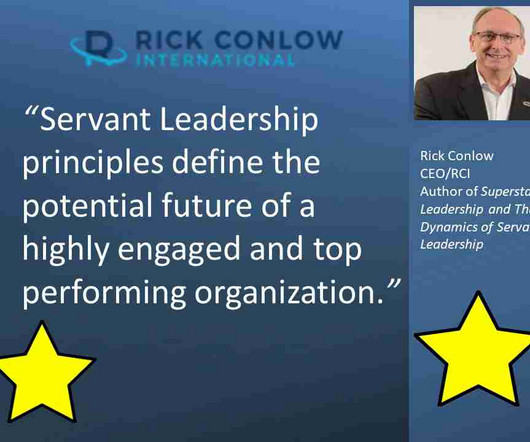Transformational Leadership: Changing Culture to Fuel Financial Success
Organizational Talent Consulting
AUGUST 7, 2023
An Examination of the Importance of Leadership Behaviors and Attributes on Shaping Culture Executive Summary Organizational culture is a critical factor in financially successful companies. But culture change is often overwhelming and elusive. Section three focuses on proven approaches to architect organizational culture.



















Let's personalize your content